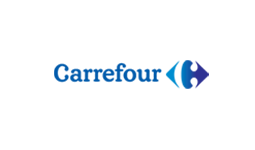Mandatory Electronic Invoicing in Switzerland
Learn how to get your company ready to exchange documents in accordance with regulations in Switzerland with the support of Comarch
Learn how to get your company ready to exchange documents in accordance with regulations in Switzerland with the support of Comarch

From the large companies perspective and B2B transactions, the EDI is a well established solution in Switzerland. With regard to smaller entities and issuing invoices to public institutions, the use of e-invoicing providers is widespread, which not only sends the invoice to the recipient, but also signs and archives it.

In Switzerland, e-invoicing has been mandatory since January 2016 only for B2G transactions. The authority responsible for e-invoicing is the Federal Finance Administration, which has not put in place a central government platform, and certified Swiss suppliers are responsible for processing e-invoices. Suppliers cooperating with federal public administrations must send invoices to the Federal Finance Administration in electronic form for a contract value exceeding CHF 5,000. For B2B and B2C transactions e-invoices remain a voluntary option.

Electronic data relevant for tax collection purposes must be stored by the sender and the recipient in the original form in which it was transferred and in its entirety on data carriers capable of automated processing. When converting data relevant for tax collection purposes into another format (inhouse format), both versions must be stored and recorded with the same index. The converted version must be marked accordingly.
Data carriers may be stored abroad only if access, reproduction and availability of the data relevant for tax collection purposes can be ensured at all times.

Switzerland recommends the use of a hybrid invoice format based on the German/French ZUGFeRD/Factur-X standard for E-Invoicing.
There is no central platform used for electronic invoicing purposes.
Required storage period is 10 years after end of accounting year.

Integrity and authenticity must be ensured and any method is accepted. For instance: it can be signatures or seals and qualified signatures, in accordance with the Swiss Electronic Signatures Act (ZertES/SCSE).

Comarch enables the exchange of invoices in ebInterface and UBL PEPPOL BIS formats to E-rechnung.gv.at, USP via PEPPOL, it has also established a BBG connection (for public procurement for certain sectors). A direct USP connection is in progress for exchanging formats other than BIS 3.0.
We have 20+ years of experience in carrying out various EDI, e-invoicing, and other document exchange projects around the world. In those years, we have successfully connected more than 130,000 entities from over 60 countries.
Full compliance with the latest data exchange regulations and modern data transfer standards
Applying new technologies and IT solutions in order to streamline workflows and automate activities and procedures
Tailor-made solutions based on processes specific to each company – own road map and a suitable pace of changes
Highest level of security for all sensitive and important company data
If your company is based or has branches in the CountryName and you need to prepare your billing and tax systems to comply with the new requirements. Click on the button below to get in touch with one of our experts.




















